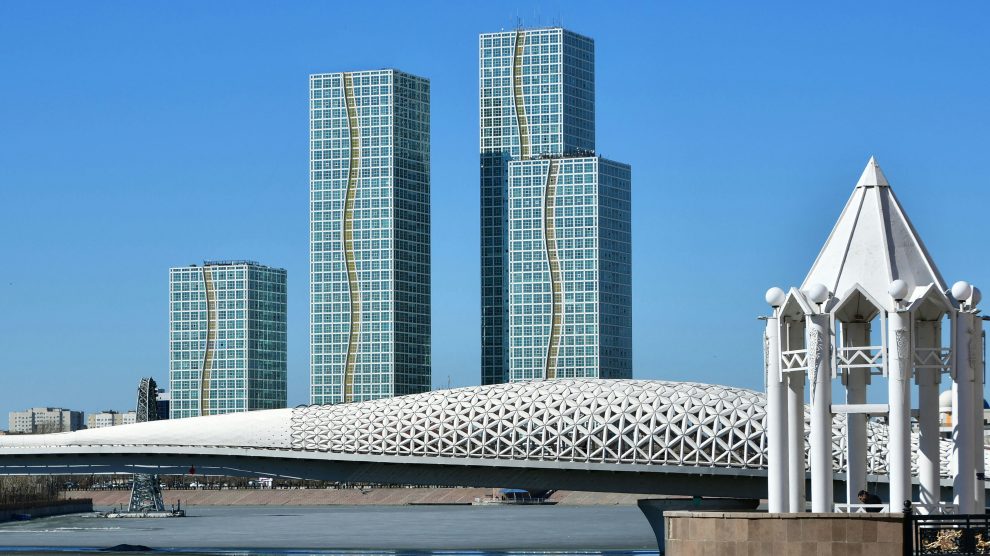In today’s world, rife with geopolitical turbulence, enhanced cooperation between the UK and Central Asia is not just beneficial but necessary.
The recent House of Commons’ Foreign Affairs Committee report on United Kingdom’s engagement in Central Asia marks a new phase in the relationship between the UK and Central Asian countries, particularly Kazakhstan.
It’s highly encouraging that the report advocates for the UK to deepen its engagement with Central Asia, including through the proposed Central Asia 5+UK meeting in 2024. This development is long overdue. This year alone, Kazakhstan has welcomed visits from the presidents of Germany and France, top EU officials, and leaders from other Western countries and beyond.
In March, Astana hosted James Cleverly, the UK’s then Foreign Secretary. However, there’s a noticeable sense that the UK’s engagement with Central Asia lags behind that of other European nations, a fair observation highlighted in the report.
- Why France’s enhanced engagement with Central Asia is imperative for Europe
- Kazakhstan’s pivot towards the West is grabbing the attention of investors
- Kazakhstan needs to strengthen its public finances to achieve inclusive and resilient growth
In today’s world, rife with geopolitical turbulence, enhanced cooperation between the UK and Central Asia is not just beneficial but necessary. The UK’s expertise in technology, education, and finance pairs well with Central Asia’s rich natural resources and strategic position as a bridge between Europe and Asia. This synergy can foster economic growth, stability, and cultural exchange, benefiting both regions.
Antiquated generalisations
One aspect of the report, however, needs addressing. The report criticises the UK Government in being “complicit in the plundering of Central Asian economies by their elites.” This sweeping generalisation of Central Asia is wrong and antiquated. My NGO focuses specifically on transparency in government finances, and I have followed closely how Kazakhstan has actively addressed the issue of illicit finance.
The Kazakh authorities concur with the report’s suggestion that combating this problem demands resources for legal action against the involved parties and measures to address the root cause. In this regard, the recent implementation of strict laws in Kazakhstan for monitoring and analysing the unlawful acquisition and transfer of assets highlights the country’s resolve to fight corruption and reclaim illegally obtained assets.
The formation of the Committee for the Return of Assets within the General Prosecutor’s Office is also a pivotal step in strengthening Kazakhstan’s fight against financial corruption. The Committee’s main responsibilities include tracking down and repatriating assets, enhancing international legal collaboration in this area, and identifying and mitigating historical factors that have contributed to the illicit accumulation and export of economic resources.
The establishment of this Committee signifies a major shift in Kazakhstan’s approach to handling financial irregularities. This initiative not only aligns with global efforts to tackle financial crime but also bolsters the country’s domestic economic stability.
A notable accomplishment in this effort is the successful recovery of assets totalling over 1.7 billion UK pounds, which includes over 480 million UK pounds retrieved from foreign jurisdictions, including the UAE, Austria, and Liechtenstein.
However, Kazakhstan requires support from the UK to recover stolen assets, including those belonging to fugitive oligarch Mukhtar Ablyazov. He fled Kazakhstan to the UK in 2009 before he fled London in 2012 when he was sentenced to jail in Britain for contempt of court.
Ultimately, while the collaboration between the governments of the UK and Kazakhstan in this sphere is undoubtedly important, cooperation between NGOs from both countries is equally significant, as it would support efforts by both governments to combat illicit finance.
Human rights reforms
Another aspect of the Foreign Affairs Committee report that needs addressing is its critique of human rights violations, which seems outdated at the very least. Over the last two years, Kazakhstan has notably advanced in human rights reforms. Key achievements include significant constitutional amendments following a national referendum last year, prohibition of the death penalty, and the establishment of the Constitutional Court.
In response to the report’s critique of alleged suppression of religious expression in Central Asia, it’s necessary to emphasize that Kazakhstan is a secular state, as stipulated in the Constitution. This secularism is applied in the sphere of education too. Consequently, the government decided to prohibit hijab headscarves for students and teachers in schools.
The aim of James Cleverly’s visit to Kazakhstan in March was to strengthen ties between the two nations. Going forward, Kazakhstan and the UK should bolster relations across various sectors, including joint efforts to curb the flow of illicit finance from Central Asia. It is in this area that Kazakh authorities and, no less important, civil society, including NGOs like ours, should get the support from our British friends.
Photo by Tim Broadbent on Unsplash.
Unlike many news and information platforms, Emerging Europe is free to read, and always will be. There is no paywall here. We are independent, not affiliated with nor representing any political party or business organisation. We want the very best for emerging Europe, nothing more, nothing less. Your support will help us continue to spread the word about this amazing region.
You can contribute here. Thank you.


